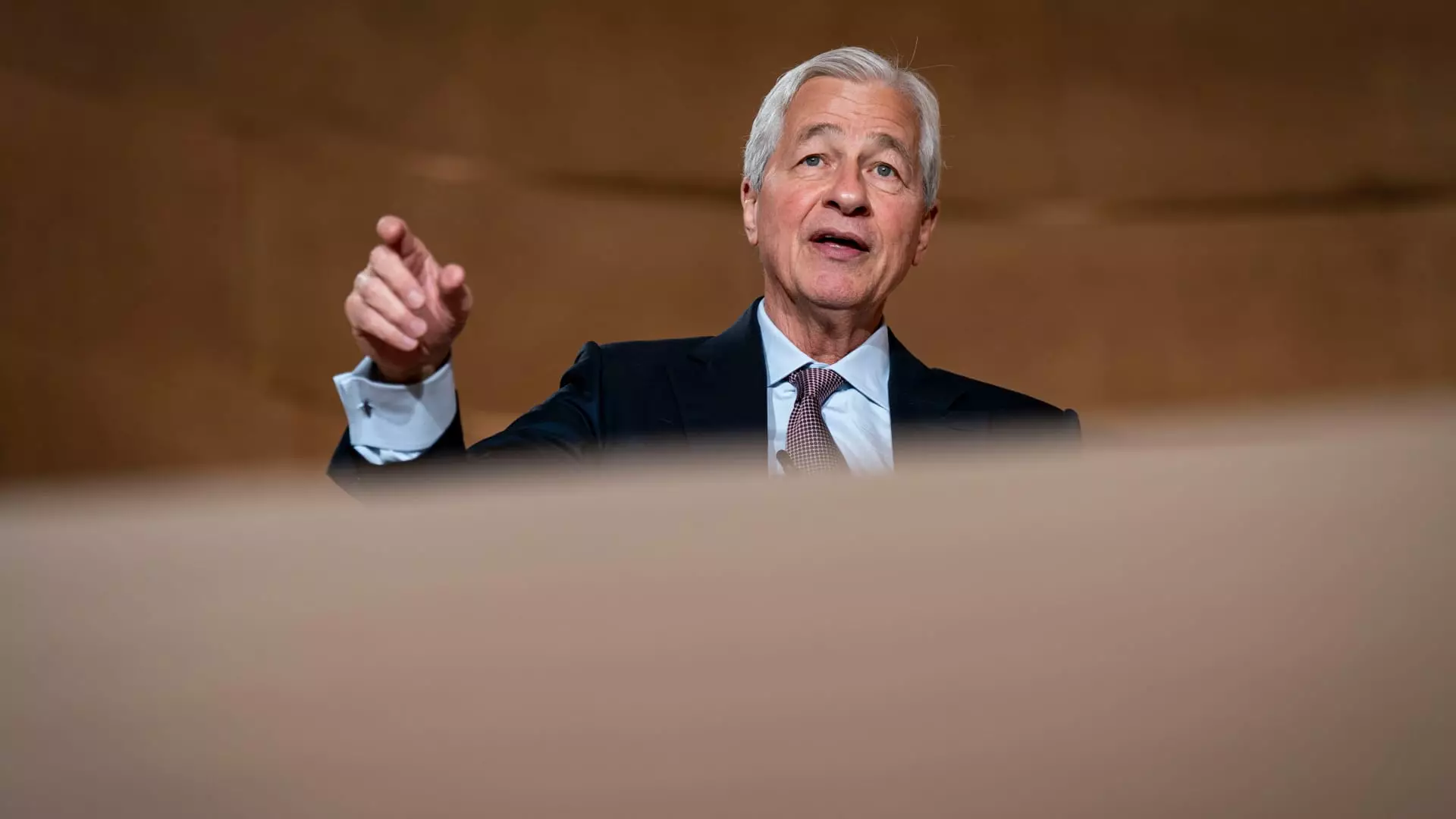In a financial landscape that often revels in bullish trends, Jamie Dimon, the long-standing CEO of JPMorgan Chase, has raised a crucial red flag that should not be dismissed lightly. During the annual investor day, Dimon articulated his concerns regarding the overarching complacency surrounding pivotal economic risks, such as ballooning U.S. deficits, rising tariffs, and simmering international tensions. This is not merely a case of market pessimism; rather, it embodies a profound underestimation of the gravity of the current economic climate. As someone who has witnessed the ebbs and flows of the market across decades, Dimon’s insights deserve attention, particularly with the political and economic instability exacerbated by recent trade policies.
Analyzing Dimon’s Perspective on Inflation and Stagflation Risks
Dimon’s assertion that inflationary pressures and the threat of stagflation are not adequately reflected in stock prices carries weight. He reminds investors that while stock markets have rebounded impressively from their April lows, this recovery might be a façade, masking underlying economic vulnerabilities. According to Dimon, there remains a significant risk of higher inflation; in fact, he candidly stated that the odds of stagflation—a phenomenon characterized by stagnant economic growth coupled with rising prices—are almost double what the market is currently anticipating.
In a world where central bankers are often viewed as the guardians of financial stability, Dimon’s critique the Federal Reserve’s seemingly complacent approach to managing inflation is particularly salient. He posed a provocative rhetorical question regarding their ability to navigate the complexities of current fiscal challenges, thereby inviting investors to critically evaluate their reliance on central bank interventions. The idea that central banks can effectively manage burgeoning debt levels without consequence is a comforting illusion that could lead to devastating repercussions for everyday citizens.
The Impact of Trade Policies on Corporate Earnings
Dimon’s apprehensions extend to the broader corporate sector as well. He pointed out that the current climate is rife with uncertainty due to President Trump’s trade policies, which may drastically alter earnings outlooks for S&P 500 companies. The prospect of earnings growth declining from a projected 12% to a dismal 0% within months raises significant alarms about the overall health of the corporate economy. If Dimon’s projections hold any truth, the ramifications could be dire, potentially triggering cascading drops in stock prices as analyst confidence wanes.
While Dimon has accurately identified this troubling trend, it’s crucial to reflect on the entwined relationship between corporate greed and market forecasts. Corporations, intoxicated by the highs of previous years, may have inflated their expectations, and as real-world pressures mount, many may retreat into caution. This tug-of-war between aspiration and reality is emblematic of an economic culture that often prioritizes immediate gains over long-term sustainability.
Navigating a Volatile Investment Landscape
Responsibility lies not just in corporate boardrooms but also with the consumers and investors who support them. As Dimon’s deputy remarked, corporate clients are maintaining a “wait-and-see” stance, reflecting an atmosphere filled with uncertainty. The cautious approach of consumers and businesses alike mirrors the intrinsic distrust in the current economic climate. This hesitance is particularly concerning, as it could result in a constricted flow of capital and investments, thereby stifling growth across sectors.
Additionally, the reported decline in investment banking revenues casts a shadow over the entire financial landscape. In this context, one has to question whether the foundation of our economic growth is secure or simply built on shaky grounds. As we navigate these turbulent waters, the need for vigilance, foresight, and a social understanding of fiscal policies becomes paramount in ensuring economic stability.
As Dimon prepares to possibly transition into a mentorship role within JPMorgan Chase, his accumulated wisdom stands as a formidable testament to the complexities of modern finance. His warnings challenge the prevailing narratives of optimism, urging individuals to confront the uncomfortable truths about our economic reality rather than succumb to a collective sigh of complacency. As we look ahead, let us heed Dimon’s clarion call for thorough examination and critical awareness of the intricate global economic system we inhabit.



Leave a Reply